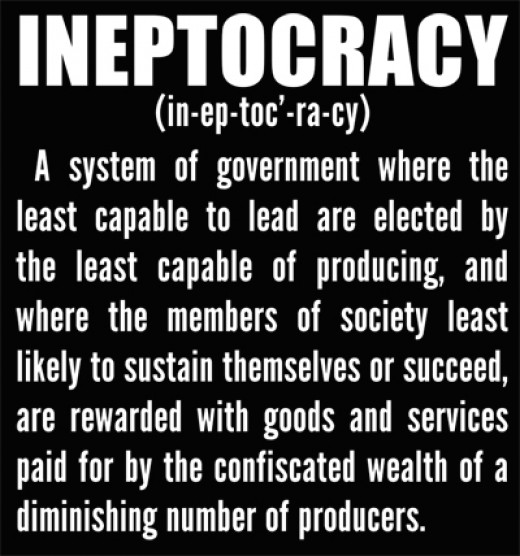I have watched with disbelief, the political system of our government in the US and even to some extent our government here in Panama when it comes to subsidizing some its citizens with taxes paid by the producers. Here in Panama by example, I was reminded by a friend, that using producer’s tax money, the government of Panama subsidizes certain dairy farmers who still trade in an unprofitable inferior grade of milk (Grade C Leche) which only encourages them to continue to do so.
This editorial by Carlos Alberto Montaner is on point.
As the notion of “acquired rights” extends its current deformation which means “even if the world is falling apart the government must pay my salary at the end of each month”, the transformation of democracies in ineptocracies is accelerating, especially in reference to democracies in Latin America, and in particularin those like Chile, Costa Rica and Uruguay, where some time ago a combination of enlightened leaders and the majority of industrious citizens created prosperous societies not only in economic terms but also in terms of civility and harmony in coexistence.
The creation of the term ineptocracy and its definition, by Jean d’Ormesson, journalist and novelist member of the French Academy, is an accurate description and explanation of the current pitfalls – road map below- of our democracies. In modern times, changes (industrialization, rationalization, computerization) in the methods of production of wealth (goods and services) allowed the basic needs of citizens to be more than met, which enabled leisure time and more space to satisfy higher needs. This led to increasing numbers of people moving away from forms of actual production of goods and services, a sector in which, despite all of the progress, the results are still sometimes good and sometimes bad, depending on droughts and floods, economic booms or financial crisis, and other events beyond rational control. For such people, the remuneration for their work does not depend on the results of the harvest. They do not care about droughts or floods, prosperity or economic crises: their salary must get to them on time because it is an “aquired right” inititally a habit, and then formalized and eternalized in positive law.
Too many supposedly modern economists -like famous Thomas Piketty- play with numbers and write thick books which feign wisdom with admonitions about how to distribute wealth. But they never explain how to generate it, because they do not know how to do that because they have no idea how to bend over to reach the ground with their hands or how to produce a machine. And the growing state bureaucracies lap up Piketty’s words so that they can keep believing that their salaries are “acquired rights” but in too many cases the amounts they receive do not even correspond to the effort made to earn them nor do they care about where the money used to pay them comes from.
After the booms brought by democracy to countries like Chile, Costa Rica and Uruguay, the supervening ineptocracy in those nations appears to be an inevitable new stage in the evolution of forms of social coexistence. The point is – to paraphrase Margaret Thatcher – the new system day’s are numbered: they are as many as it takes for those producing wealth to disappear.
